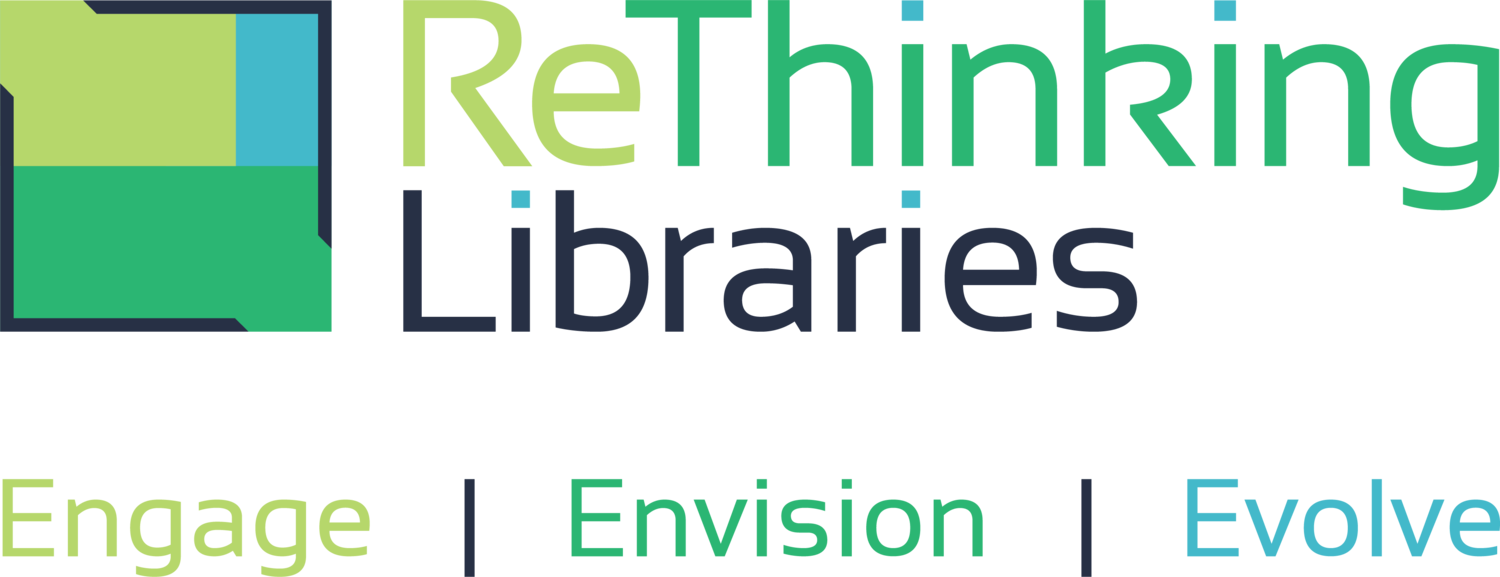The Benefits of Hiring a Library Consultant
Hiring an experienced library consultant can be perceived as an added expense, but often it can be the best investment that you make when pursuing any type of library project. As libraries are often being challenged to do more with less, it’s more important than ever to focus on community needs and consider new alternatives. Sometimes it’s hard to do that when you aren’t sure what else is out there or where to start. Here are just a few reason you should consider looking to a consultant for assistance.
1. Past experience with a range of projects. Libraries and communities come in all shapes and sizes and their needs are unique to each situation. An experienced consultant has learned from these differences and developed flexible approaches and novel solutions that best fit each library.
2. Experience in identifying and engaging Library users and non-users. The best libraries are customer-focused and the only way that can be achieved is by talking to the stakeholders. In addition to engaging those who actively use the library, it is also important to find what is missing that might open the library up to new users. Often, during engagement community members tend to be more honest with independent consultants than they are with library staff. A consultant with an approach focused on seeking community insight will be more likely to develop a successful plan.
3. Focused attention on development of the plan. With library resources and staff often to being stretched to the limit, a consultant can offer additional resources for efficiently and effectively keeping a plan on track. While it is best if the Library staff is involved in the process and able to continue the vision into the future, a lot of the “heavy lifting” can be removed allowing staff to continue attending to the everyday needs of the Library while the plan continues to develop and evolve.
4. Expertise in developing a strong, workable plan. While some librarians have participated in the planning process, often they have not led it and aren’t comfortable in that role. Even those who have led that planning process often recognize that they have a limited view of the available opportunities. A consultant can offer new analysis techniques, perspectives from other projects and challenge ideas in a way that leads to a more robust outcome that considers a wider range of options. Particularly in construction and renovation projects, most librarians have limited to no experience and a consultant can offer a broader vision and often prevent costly mistakes.
5. Collaborative relationship extending beyond the completion of the project. One big advantage to working with a consultant is the collaborative relationship that develops and can be leveraged in the future. Most consultants are happy to keep in touch and answer questions long after a project is complete. They consider their clients to be peers working as a team and there is mutual learning taking place.
6. Transfer of knowledge to enhance staff background and experience. An engagement with a consultant should not just be viewed as a means to an end for a short-term project. It can also be viewed as a training and growth opportunity for any staff involved. The best consultants are concerned with helping a client to learn what is being done and why, so they are able to use the approach and learnings in the future, even after the consultant is gone.
7. Offer of an outside, objective perspective. A consultant will be approaching your project from a data-driven angle. They look at the library statistics, community data, consult with the community, librarian, staff, and board, incorporate benchmarks from other libraries and apply all of the quantitative and qualitative information to recommendations. Since they have no preconceived notions coming into the situation, they are better able to objectively evaluate and either validate or challenge pre-existing assumptions. This data-driven approach also ensures that a comprehensive view of the total library plan is taken into account.
8. Ability to translate information into action. Gathering the appropriate information for a project is part of the challenge but determining how to mold it into a meaningful and actionable plan that will not just be stuck in a drawer to gather dust is quite another concern. Experienced consultants are adept at doing this and tailor the plan to each situation. The cost of a consultant can usually be saved many times over in the operational efficiencies over time and reductions in construction costs in a building project.
9. Development of a plan laying the foundation for future work. Regardless of the type of plan being developed, it should develop a lasting future vision. It helps provide rational justification for budgets, prioritizes programs and directs efforts toward realizing objectives. A consultant can help ensure critical areas of service are included in the final plan and the approach is forward looking. The plan includes important documentation that forms a building plan for an architect to work from or allows for continuity in a leadership transition. Communication of the final plan can provide increased community awareness for the Library and a motivating mission for leadership and staff.
Remember, it is important that any type of library plan is flexible and able to respond to future developments. Library functions and spaces should be able to expand and contract as needs change and technology evolves. Collaborating with a library consultant on your next project is an investment in your Library that will pay dividends by incorporating insights and planning in a way that best serves your community in years to come.

